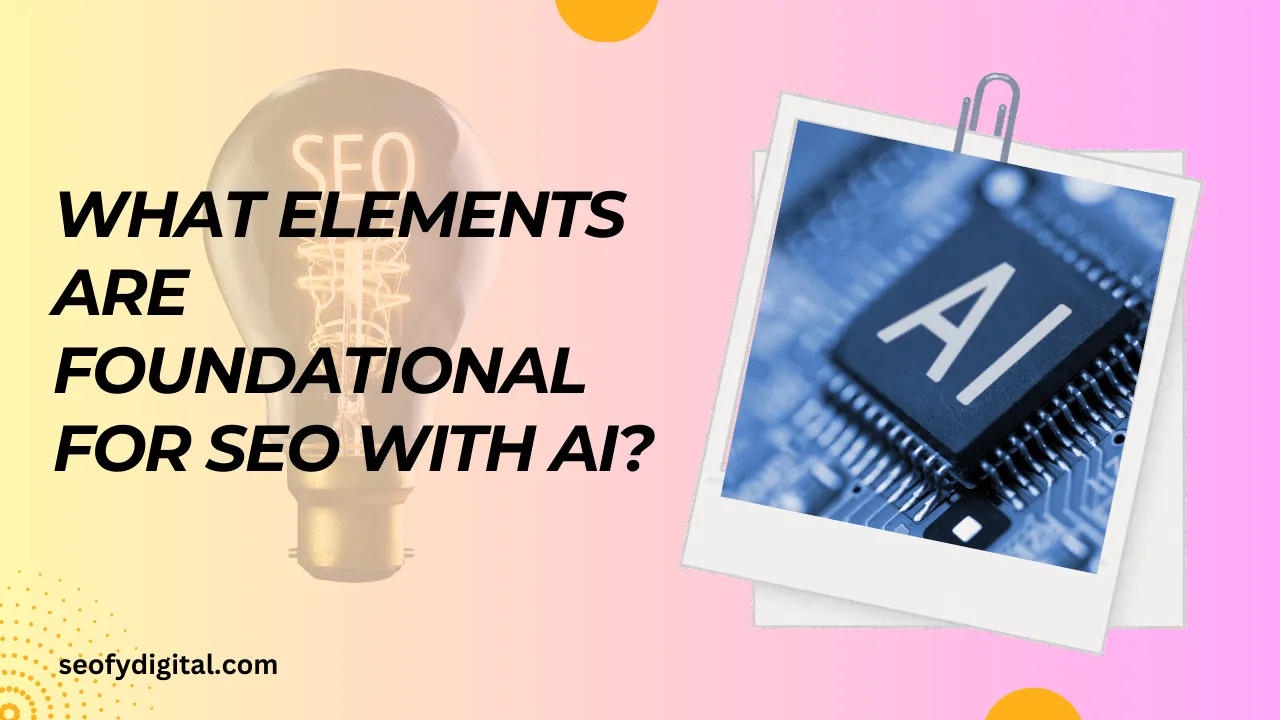In the rapidly evolving digital world, AI-driven SEO is changing how brands engage with audiences, climb search rankings, and create more targeted content. With AI taking on a major role in data analysis, content generation, and predictive insights, businesses are experiencing a transformation in how they approach search engine optimization.
Where traditional SEO relied heavily on keyword placement and link building, AI allows for a much more sophisticated approach, tailoring content to user intent and adapting as trends shift.
For brands, incorporating AI in SEO is no longer a luxury but a strategic advantage. AI-powered tools can now predict search trends, analyze user behavior, and generate SEO-optimized content, which helps businesses anticipate and meet consumer needs in real-time.
This shift is especially important for companies looking to reach users across diverse platforms, including mobile and voice search devices, where natural language processing (NLP) and other AI techniques allow for more conversational and accessible search experiences.
This article delves into the core elements that make AI a foundational force in modern SEO: from AI-powered content creation and advanced monitoring tools to predictive analytics and ethical considerations.
By the end, you’ll gain a practical understanding of how to leverage AI for SEO, along with insights into future trends and considerations that will shape the landscape for years to come.

Contents
- 1 1. AI-Powered Content Creation
- 2 2. Advanced SEO Tools
- 3 3. Ethical Considerations and Future Trends
- 4 Conclusion
- 5 FAQs
- 5.1 1. How does AI enhance content creation for SEO?
- 5.2 2. Is AI capable of handling all SEO tasks independently?
- 5.3 3. How does predictive analytics benefit SEO?
- 5.4 4. What is voice search optimization, and why is it necessary?
- 5.5 5. Are there any ethical concerns associated with AI in SEO?
- 5.6 6. What are some of the most popular AI tools for SEO?
1. AI-Powered Content Creation
AI content creation tools are transforming how brands produce and refine digital content. Natural language generation (NLG) tools like GPT-3 and ChatGPT enable automated content creation, producing blog posts, product descriptions, and meta tags that are not only SEO-friendly but tailored to specific audiences.
This automation helps companies scale their content output quickly, maintaining a consistent brand voice and reducing costs associated with manual content creation. Content optimization takes AI content creation further, allowing marketers to refine content using keyword insights, readability analysis, and overall performance metrics.
Tools like Surfer SEO and Frase analyze the competitive landscape, suggesting keywords, title tags, and meta descriptions that align with search intent. They also analyze the density and placement of keywords to ensure optimal results without keyword stuffing, helping to achieve higher rankings organically.
However, there are limitations to AI in content creation. AI can produce a lot of information, but it lacks a human touch, so some editorial oversight is needed to ensure that content reflects brand tone and accuracy. Combining AI-driven efficiency with human creativity allows for the most effective results in SEO-focused content strategies.
2. Advanced SEO Tools
AI-powered SEO tools are the backbone of modern SEO strategies, using predictive analytics and real-time monitoring to give marketers a clear view of their site’s performance and opportunities for improvement.
Predictive analytics allow businesses to anticipate user behavior, giving them insight into potential trends and content needs before they emerge. By using historical data and AI’s pattern-recognition abilities, brands can create content tailored to future demands, positioning themselves as thought leaders.
Real-time monitoring and analysis capabilities in tools like Ahrefs and SEMrush simplify tracking site performance, identifying SEO problems, and generating actionable insights.
These platforms allow for automated reporting and real-time alerts, reducing the time and effort needed for manual tracking. AI’s ability to process data instantly is particularly valuable for large sites with dynamic content, where fast decision-making is crucial for staying competitive.
Voice search optimization is another area where AI is critical, helping brands tailor their content to voice-activated search engines like Google Assistant, Amazon Alexa, and Siri. With the growing number of people using voice search, optimizing for natural, conversational language is crucial.
AI tools analyze how users phrase voice queries differently from text-based searches, suggesting phrases that align with spoken language to capture a broader audience.

3. Ethical Considerations and Future Trends
As AI becomes more influential in SEO, it’s essential to consider the ethical implications. One of the primary concerns is bias in AI algorithms, which can affect search results. AI often learns from existing data, and if that data contains biases, these can be perpetuated or even amplified in search algorithms.
This is particularly relevant when AI is used in content recommendation engines and SEO practices since bias can lead to skewed or unfair rankings, impacting content visibility for certain groups.
In the future, SEO with AI is expected to evolve with advancements in machine learning, natural language processing (NLP), and augmented reality (AR). These technologies will help businesses create more immersive, personalized experiences, aligning SEO strategies with user preferences and behaviors.
For instance, NLP advancements allow search engines to understand context more effectively, meaning that brands will need to focus on creating content that is contextually relevant and responsive to diverse user queries.
Businesses should also watch for ethical AI frameworks, which will become increasingly important in SEO. By maintaining transparent AI practices, companies can ensure that they are using AI responsibly and providing users with fair search results. This commitment to ethical practices will be an essential trust factor for consumers as they interact with AI-influenced content.
Conclusion
The integration of AI in SEO is reshaping digital marketing, transforming how companies approach content, analytics, and user engagement. From predictive analytics to real-time monitoring and voice search optimization, AI offers a powerful set of tools that enable marketers to reach users more effectively and anticipate shifts in the digital landscape.
As brands integrate AI-driven tools into their SEO strategies, they’re able to gain a competitive edge, reach broader audiences, and stay relevant in an increasingly automated market.
However, as AI transforms SEO, ethical considerations must remain a priority to ensure fair and unbiased search practices. Ensuring that AI-driven tools are transparent and used responsibly is critical for maintaining trust with users.
As AI and SEO continue to evolve, businesses that embrace AI with a balanced, ethical approach will be well-positioned to thrive in the digital landscape.
FAQs
1. How does AI enhance content creation for SEO?
AI assists in generating high-quality content quickly, using keywords and optimizing readability to ensure content is SEO-friendly.
2. Is AI capable of handling all SEO tasks independently?
No, AI can automate many tasks, but human oversight is still needed for accuracy, tone, and brand alignment.
3. How does predictive analytics benefit SEO?
Predictive analytics helps forecast trends and user behavior, allowing marketers to tailor content to meet future demands.
4. What is voice search optimization, and why is it necessary?
Voice search optimization focuses on conversational keywords and phrases, which are essential as more users turn to voice-activated devices.
5. Are there any ethical concerns associated with AI in SEO?
Yes, AI can introduce biases into search algorithms, which affects rankings; ethical practices help keep search results fair and unbiased.
6. What are some of the most popular AI tools for SEO?
SEMrush, Ahrefs, and Surfer SEO are popular for keyword research, content analysis, and site monitoring.








